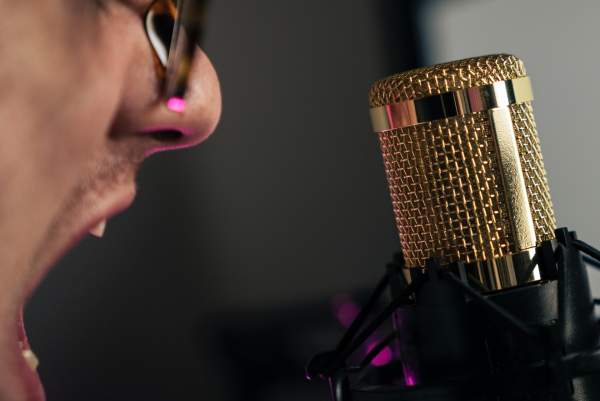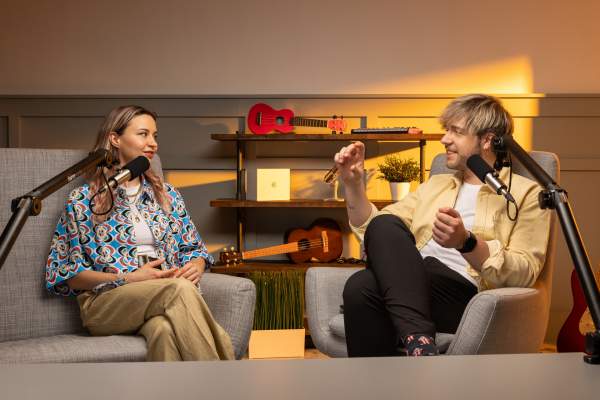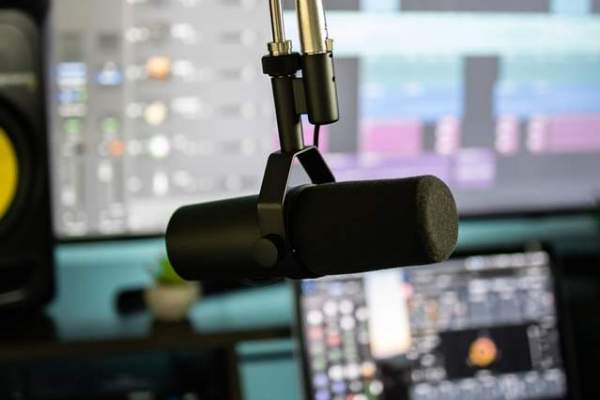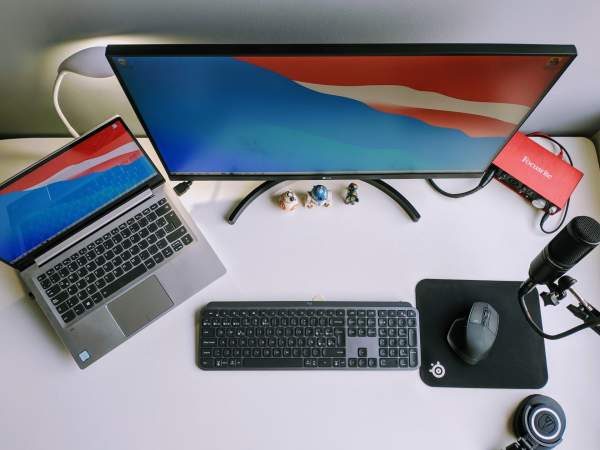Podcasting has become one of the most pervasive and fastest growing media formats, but it’s not obvious how to start a podcast. On the technical side, all you need is some audio and recording equipment and an internet connection (here’s a good place to start on that). But on the content side, with thousands of other podcasts competing for listeners, it can be hard to stand out.
Below, we’ll give you ideas for how to create podcasts that are compelling and primed for success.

Who Is Your Target Audience?
If you’re getting started with podcasting, one of the first things you need to consider is who your target audience will be. With thousands of podcasts out there on every topic under the sun, it is counterproductive to expect your podcast to appeal to everyone. Teenage girls from California simply won’t have a lot of crossover with, say, baby boomer Vietnam veterans. A better approach is to find a unique niche with a potential to build a loyal following of listeners interested in that niche.
This might seem counterintuitive. Because sitcoms, blockbuster movies, Top-40 pop songs and other media often try to reach as broad an audience as possible by catering to popular shared tastes. But that’s just it. You presumably don’t have a billion-dollar studio backing your content. Even if you aspire to reach the level of a Joe Rogan, you first have to build an audience. And it’s much easier to avoid getting drowned out by finding a niche. Trying to appeal to everybody, especially when you’re just starting, is a great way to risk appealing to nobody.

How Do You Pick a Podcast Topic?
Picking a podcast topic follows some of the same logic. Unless you’re already established in your area of interest or your charm is off the charts, you are handicapping yourself by starting the millionth “talk about the news” or true crime podcast in 2022. Yet if you narrow your scope, you have a better chance to dominate your subgenre. Instead of a general politics podcast, start a podcast about the most badass female legislators. Or instead of making a true crime podcast that gets buried under dozens of others on people’s feeds, narrow the topic to something like “most heinous crimes of the Old West.” It’s all about gaining a competitive advantage. Give listeners a reason to download your show instead of the other ones already out there.
Other Factors to Consider When Choosing a Topic
Obviously, the main thing to consider when choosing your podcast topic is making sure it interests you—otherwise, you wouldn’t spend your time doing it. On the other side of that coin is that it has to interest other people—otherwise, you wouldn’t bother recording it and you would just talk to yourself.

If your podcast is about current events, such as sports, new comic book releases, or new scientific discoveries, you’ll want to make sure the subject stays relevant and topical. Waiting even one month to talk about the new Jurassic World movie may feel stale. Waiting two days to discuss the results of the NBA Finals is too long. Even if your podcast is more evergreen, remember that your audience is made up of real people living now, so whatever topic you pick should relate to their lives somehow.
You’ll also want a topic that stays interesting and always allows room for new content. Making your podcast about current events is a surefire way to ensure you can create endless content, as there are always new events every day. But this strategy also works for history, philosophy, sports, farming, or really any topic that bears any complexity or depth. Just make sure you’re capable of understanding your topic in the depth that it warrants.
How to Format Your Podcast
This is another part of podcasting basics that is important to get right and be consistent about. Anyone who’s listened to even a handful of podcasts will know that they come in different formats or structures. Some have intros and outros with music or soundbites, while others simply begin and end abruptly. Some feature a cohost, interviews or panel discussions, while some are just one host delivering monologues or rants for the listener’s pleasure. None is inherently better than the other; your podcast should follow your personal aesthetic and goals that you want to accomplish. Keep in mind that if your podcast regularly conducts interviews, you need to be prepared for any audio or video issues that will come up.

What Podcasting Sites Can You Use?
One of the most common questions from people who want to know how to start podcasting is what podcasting sites they can use. Websites that host podcasts are called podcast hosting platforms, and they are essential for podcasting in 2022. These services are where listeners go to stream, download and/or subscribe to your podcast. Some of the most popular hosting platforms include Anchor, Fireside, Libsyn, Soundcloud and Transistor. It’s worth looking at a few different options to compare price (some are free) and features.
The way it works is you upload your podcast to the platform, which then creates an RSS feed, which lets subscribers on Spotify, Apple Podcasts, etc. know when a new episode is released.
Conclusion
These are a few podcasting basics, but we certainly didn’t cover everything that new podcasters might want to consider. See the rest of our series on podcasting to get some more tips and best practices.
Do you have any tips for how to get started podcasting? Comment below!







